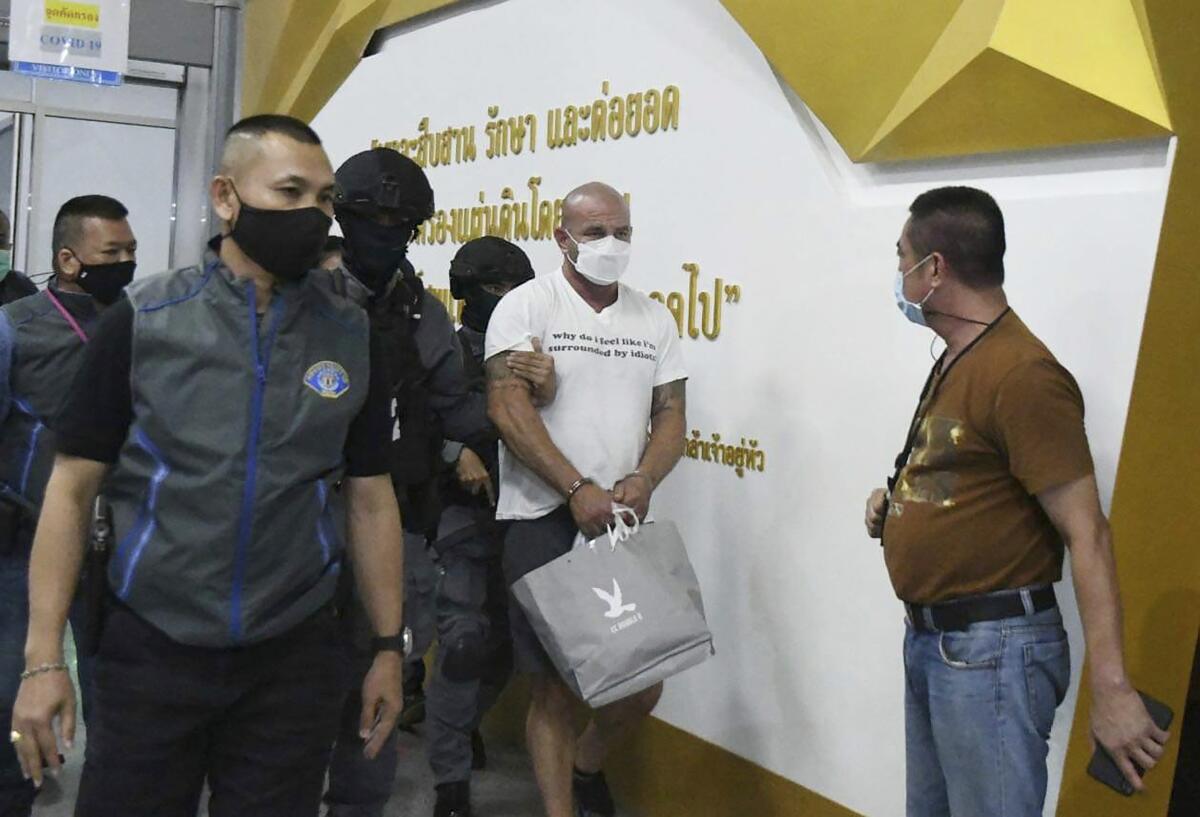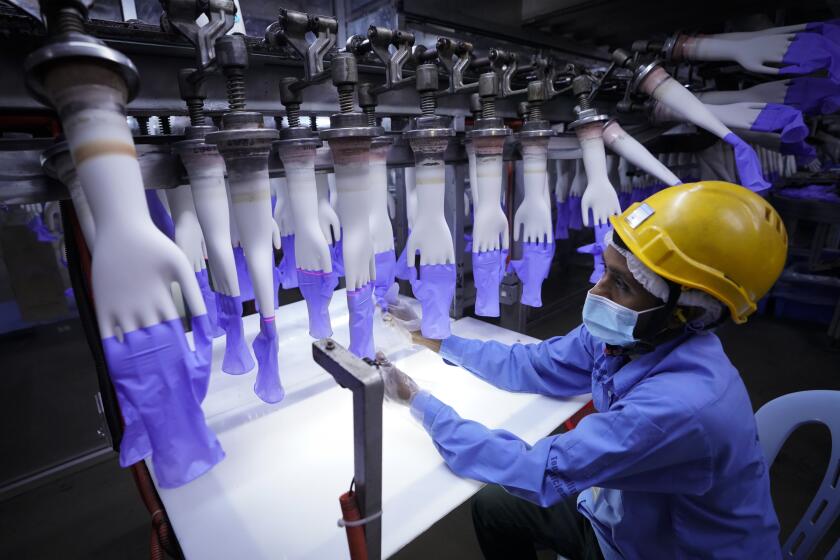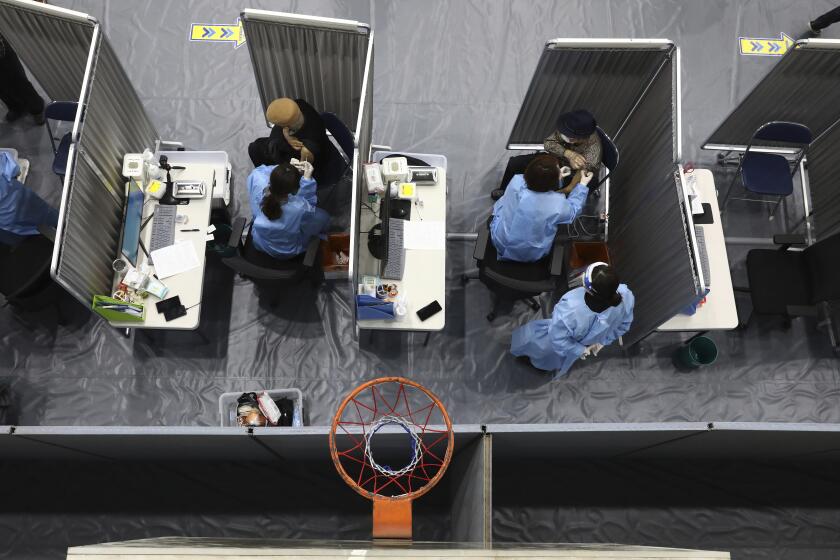L.A. ex-drug-smuggler-turned-entrepreneur arrested in Thailand kidnapping case

- Share via
BANGKOK, Thailand — Police in Thailand said Thursday they were pursuing more suspects in the kidnapping of a Taiwanese businessman in which an L.A. ex-convict-turned-entrepreneur and two other men have been arrested. The case involves a business dispute over the purchase of nitrile gloves — critical personal protective equipment during the COVID-19 pandemic.
Louis William Ziskin, 51, the CEO of a Los Angeles-based tech company who was convicted of drug-smuggling in 2001, was arrested Saturday along with Jeremy Hughes Manchester, identified as a former U.S. Marine, and a Thai man. Five additional suspects in the case are from the U.S. and Israel, said police Col. Netiwit Thanasithnitikul of Thailand’s Crime Suppression Division.
Ziskin and Manchester have denied the charges, which include kidnapping, attempted murder, assault and being part of a criminal gang. Both are free on bail but must wear tracking devices at all times and cannot leave Thailand. Attempts to contact Ziskin by phone and email Wednesday were unsuccessful, and it is not known if he has retained a lawyer.
Netiwit said the case resulted from a business deal gone sour between Ziskin and the company for which the Taiwanese man worked. Ziskin accused the company of cheating by selling him substandard nitrile gloves for almost $3 million.
Netiwit said Ziskin allegedly hired a group of Americans and Israeli private detectives based in Thailand to help recover the money he paid the Taiwanese company for the gloves.
“This crime has two complicated aspects. One is a kidnap attempt, and [the] other is the medical supply deal gone bad during COVID time,” said Netiwit.
U.S. trade bans are spurring labor reforms in Malaysia, which produces two-thirds of the world’s disposable gloves.
He said that Thailand is one of the world’s major glove suppliers, and “we hear so many stories of fraudulent deals by people who claimed to represent a legitimate glove company when they don’t really have any connection.”
He said the police department’s Economic Crime Division was investigating the glove deal.
According to a police statement after Saturday’s arrests, the representative of the Taiwanese company, Wen Yu Chung, was lured to a meeting in March this year on the pretext of discussing the possible purchase of rubber gloves.
The group allegedly hired by Ziskin, including Manchester, seized Wen in full view of customers, restaurant staff and a CCTV camera, dragging him outside after a brief struggle and bundling him into a waiting vehicle, which took him to a rented room nearby.
With part-time jobs decimated by the COVID-19 pandemic, young South Koreans turn to being lab rats for quick cash
Wen was allegedly threatened with physical harm, and the men holding him are accused of using his phone to call his company to demand $2 million and to call his family to demand $1 million. The company refused and contacted the authorities.
Wen was then taken to another restaurant, according to police, where Ziskin insisted that he wanted the Taiwanese company to return his payment for the gloves.
That same night, they brought Wen to a police station where they wanted him to sign a statement that he would not press charges against them. He refused, after which he was released. He returned later to the police station to file a complaint.
Ziskin was arrested in 2000 and convicted of being part of a drug ring that smuggled large amounts of the drug Ecstasy to Southern California from Europe. He was released from prison in 2011 and remodeled himself as a serial entrepreneur, whose main business, DropIn Inc., uses drones to help insurance companies evaluate risks and verify claims.
Ziskin also is an active motivational speaker, presenting himself in personal appearances, interviews and podcasts as an example of how a convicted criminal can clean up his act and prosper in legitimate business.
More to Read
Sign up for Essential California
The most important California stories and recommendations in your inbox every morning.
You may occasionally receive promotional content from the Los Angeles Times.









